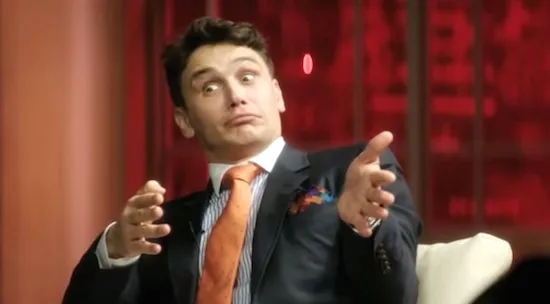GLAAD released its third annual report on Hollywood’s LGBTQ+ representation earlier today, and although this year saw some notable improvements, GLAAD president Sarah Kate Ellis notes that most major studios still have significant work to do.
GLAAD’s report tracked 2014 films from the largest-grossing mainstream Hollywood studios and found that, of the 114 major releases last year, only 20 films (17.5 percent) contained characters that GLAAD considered lesbian, gay or bisexual. There were no identifiable trans characters in a single major 2014 release. Ellis explains,
To even call these 20 films inclusive is a bit of a stretch: ten of those movies contained less than five minutes of screen time for their LGBT characters – and several clocked in at less than 30 seconds.
[…] As great as it is to see gay characters in How to Train Your Dragon 2 and The Expendables 3, huge sections of the audience probably weren’t even aware they were there.
Of the LGBTQ+ characters depicted in those 20 films, 65% were gay men, 30% were bisexual and 10% were lesbians. 67.9% were white.
Warner Bros. was the sole recipient of a “good” rating for 2014 (GLAAD’s report has yet to reward a studio with an “excellent” grade), although Ellis notes that Tammy’s representation was followed by “one of the most problematic films we’ve seen in years, the gay-panic exploiting comedy Get Hard.” Disney received a “failing” grade (the studios’ sole LGBTQ+ representation was Lady Gaga’s cameo in Muppets Most Wanted), as did Sony.
But it’s not all bad news! Ellis notes that 2014 saw fewer instances of defamatory representation than 2013, although she does mention Exodus: Gods and Kings and Horrible Bosses 2 as notably terrible exceptions. And thankfully the state of Hollywood isn’t indicative of representation in media overall–if anything, major studios are far behind the times. Writes Ellis,
More inclusive portrayals of LGBT characters are being seen on television and through streamed content than ever before […] While TV networks like MTV and ABC Family successfully court younger viewers with more diverse offerings that reflect the actual lives they lead, and huge audiences flock to smaller screens to consume ground-breaking stories that reflect the diverse world we actually live in, Hollywood’s movie studios seem to be operating in a time warp.
Remember, Hollywood: representation sells.
(via The Hollywood Reporter and Variety)
Do you follow The Mary Sue on Twitter, Facebook, Tumblr, Pinterest, & Google +?









Published: Apr 15, 2015 01:19 pm